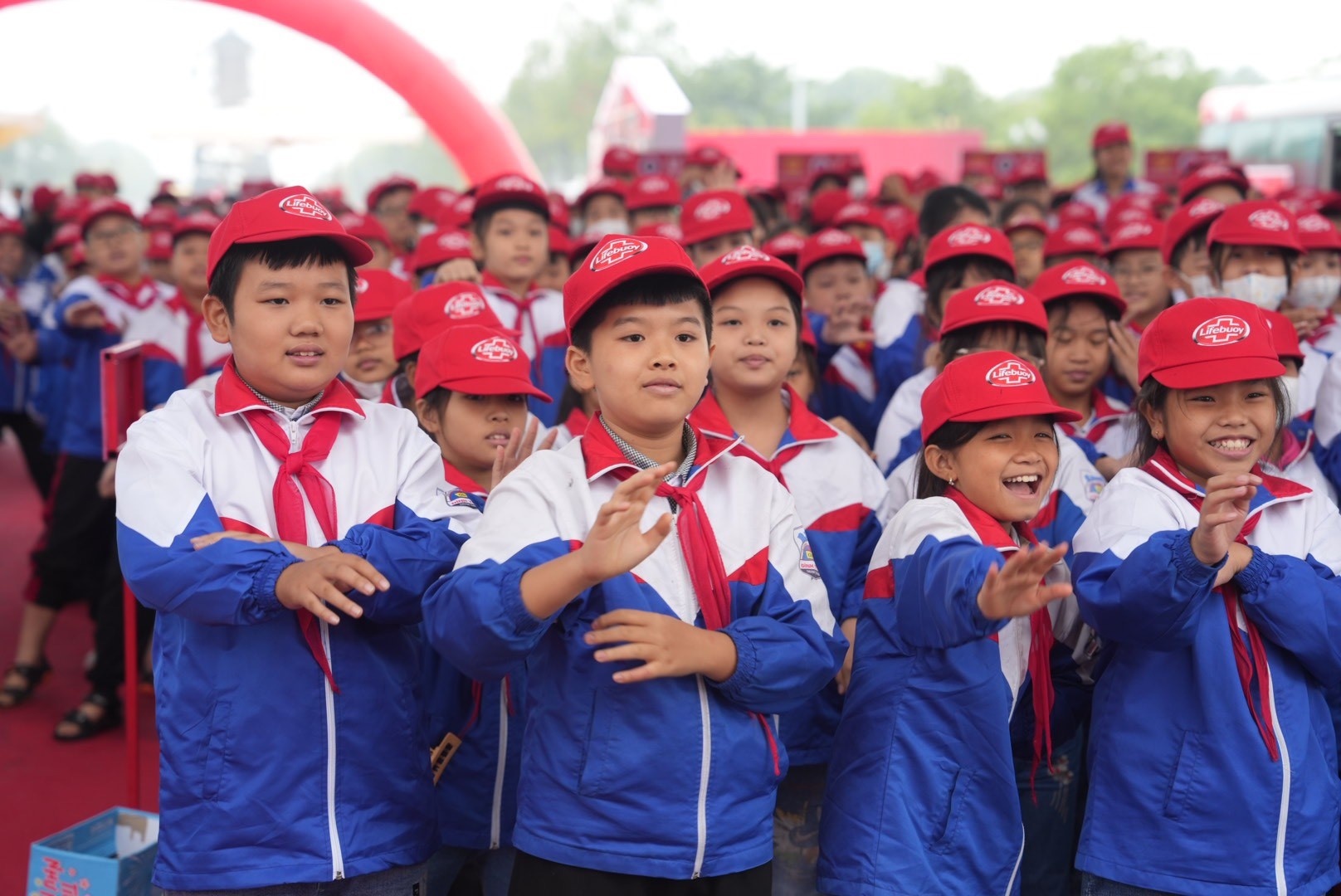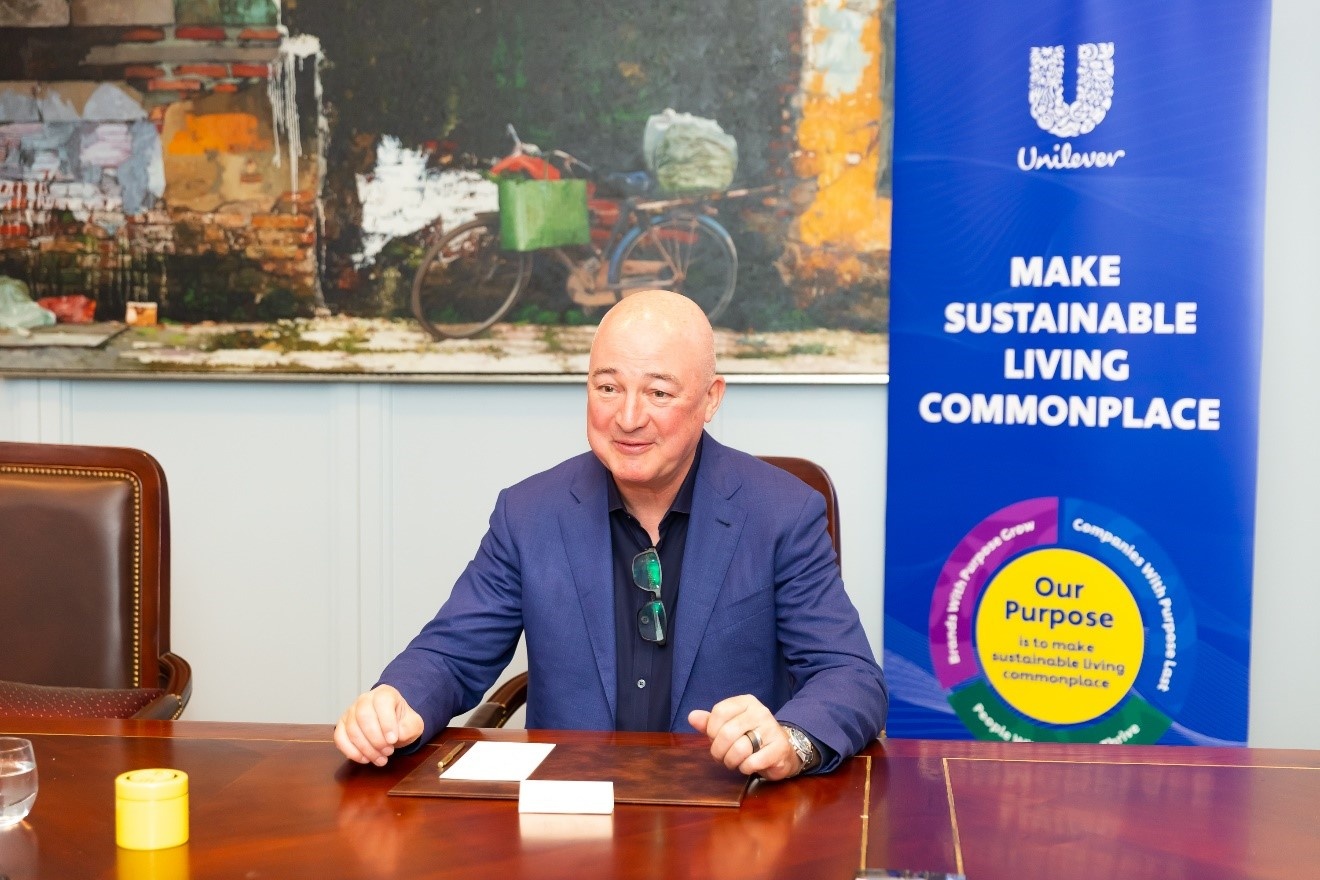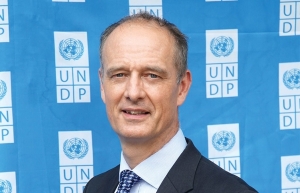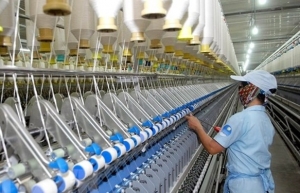Unilever: Sustainability and business growth are not conflicting
That is the vision Unilever is pursuing: Proving that a sustainable business model drives superior performance.
“We do not believe that there is a trade-off. Sometimes there are short-term trade-offs where you incur a cost as an investment. But over the long term, there are many reasons sustainable business results in a stronger, more durable business,” said Alan Jope, Unilever CEO, on his visit to Vietnam.
In Vietnam, Unilever’s business shows good alignment on this issue. Its purposeful brands are impressively growing, aiming at creating a positive impact on people, the environment, and society without compromising product quality and value.
This all has a positive impact on Vietnamese people. Unilever Vietnam’s Personal Care business leads its peers while improving hygiene standards.
Take Lifebuoy, for example; it delivers handwashing education to 35 million people. P/S provides oral care education to 25 million children. This means that more people are washing their hands and brushing their teeth for personal hygiene, which drives the market for handwashing soap and toothpaste.
 |
| Lifebuoy helps improve people’s health with handwashing habits |
The Home Care business at Unilever Vietnam is showing strong growth while rolling out the “Clean Future” programme, which aims to give consumers high-performing products that are also better for the planet.
Brands like Sunlight, OMO, and Comfort now have more eco-friendly formulations that are gentler on the skin and use more sustainable packaging.
| As the beauty and well-being business expands, Unilever Vietnam’s brands give people the dignity and confidence to express themselves and conquer their dreams. |
As the beauty and well-being business expands, Unilever Vietnam’s brands give people the dignity and confidence to express themselves and conquer their dreams.
Sunsilk’s “Dream too good to hold back” campaign helps girls overcome gender stereotypes in the world of work, and Dove’s “My hair, my say” campaign encourages women to embrace their style and not be dictated to by society.
Additionally, Unilever’s brands in Vietnam are taking a stand and acting on social and environmental issues.
Sunlight is popular with Vietnamese women, and the brand supports 100,000 women to do business for economic gains and a more stable, happier life through the “Women Do Business” programme.
OMO is driving “Dirt is Good,” which inspires 500,000 young consumers to plant trees to protect forests and regenerate nature through 380,000 trees planted in 19 provinces and cities.
The Unilever CEO said, “We've got very hard evidence that brands that consumers see as having a positive impact on the society of the planet grow faster than the rest of the portfolio.”
 |
| Unilever CEO Alan Jope discusses the sustainable living brands of Unilever |
The Vietnamese market delivers a range of achievements on its long-term sustainability agenda and has ambitious targets on the horizon.
These commitments aim to tackle key challenges of our time, such as packaging and waste, gender equality, human rights, fair value, climate change, and social inclusion.
The company commits that all packaging is reusable, recyclable, or compostable and aims to reduce 90 per cent of virgin plastic reduction through absolute reduction and PCR inclusion by 2025.
Unilever is also striving to achieve the target to collect and process more plastic waste than the plastic they use for their packaging by 2030.
The company’s commitments are also driven by the ambition of planting one million trees by 2025 for positive carbon and achieving a net-zero value chain by 2039.
For people’s benefit and an inclusive society, the company takes a pledge to support 10 million people to improve their health and well-being by 2030 and empower one million Vietnamese women to achieve more in life with training and funding support by 2027.
It is not just about Unilever driving the sustainability commitments alone but creating a more significant impact through inspiring think-alike businesses and organisations.
“Because of that, we enjoy tremendous partnerships with the government, NGOs, and other like-minded companies. We are for sure a stronger company for the partnerships that our sustainability commitments have made. Overall, we think macro and micro risks are reduced by attempting to do our business on a sustainable platform,” Jope said.
 | Sustainability reports still underutilised Besides annual reports, sustainability reports are increasingly creating competitive advantages and attracting investor attention. However, only a few listed companies in Vietnam have issues such a report, with most only at acceptable quality. |
 | The proactive pursuit of sustainability The Vietnamese business community is pursuing sustainable development. Patrick Haverman, deputy resident representative of the United Nations Development Programme (UNDP) in Vietnam, talked to VIR’s Thanh Tung about how this will help it improve competitiveness and expand performance. |
 | Sustainability key to cotton production growth: Experts Sustainable cotton production will drive continuous improvement of the garment and textile industry's key indicators for sustainable development, according to experts. |
What the stars mean:
★ Poor ★ ★ Promising ★★★ Good ★★★★ Very good ★★★★★ Exceptional
Related Contents
Latest News
More News
- Agro-forestry and fisheries exports jump nearly 30 per cent in January (February 09, 2026 | 17:45)
- Canada trade minister to visit Vietnam and Singapore (February 09, 2026 | 17:37)
- New tax incentives to benefit startups and SMEs (February 09, 2026 | 17:27)
- Vietnam forest protection initiative launched (February 07, 2026 | 09:00)
- China buys $1.5bn of Vietnam farm produce in early 2026 (February 06, 2026 | 20:00)
- Vietnam-South Africa strategic partnership boosts business links (February 06, 2026 | 13:28)
- Mondelez Kinh Do renews the spirit of togetherness (February 06, 2026 | 09:35)
- Seafood exports rise in January (February 05, 2026 | 17:31)
- Accelerating digitalisation of air traffic services in Vietnam (February 05, 2026 | 17:30)
- Ekko raises $4.2 million to improve employee retention and financial wellbeing (February 05, 2026 | 17:28)

 Tag:
Tag:


























 Mobile Version
Mobile Version